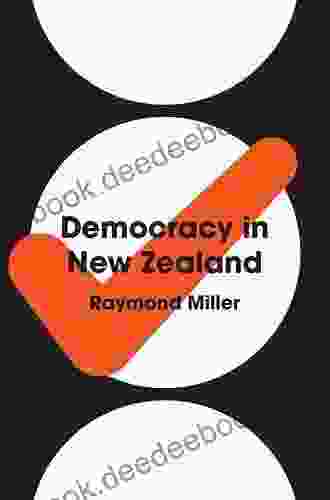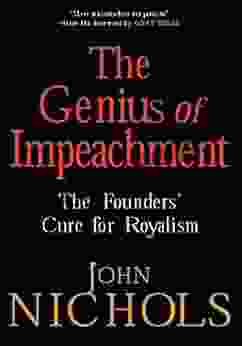Democracy in New Zealand: A Comprehensive Overview by Raymond Miller

5 out of 5
| Language | : | English |
| File size | : | 4785 KB |
| Text-to-Speech | : | Enabled |
| Screen Reader | : | Supported |
| Enhanced typesetting | : | Enabled |
| Word Wise | : | Enabled |
| Print length | : | 288 pages |
| Lending | : | Enabled |
New Zealand is widely recognized as one of the most democratic countries in the world, with a long history of political stability, strong institutions, and a commitment to human rights. Its democratic system has evolved over time, shaped by a unique set of historical, cultural, and social factors.
Historical Development of Democracy in New Zealand
The roots of democracy in New Zealand can be traced back to the 19th century, when the country was a British colony. The New Zealand Constitution Act of 1852 established a representative government, with a bicameral legislature consisting of a Legislative Council appointed by the Crown and a House of Representatives elected by the people. Universal suffrage was introduced for men in 1879 and for women in 1893, making New Zealand one of the first countries in the world to grant women the right to vote.
In 1907, New Zealand became the first country in the world to adopt proportional representation for its electoral system. This system, known as the Mixed Member Proportional (MMP) system, combines elements of both first-past-the-post and proportional representation, ensuring that both local and national interests are represented in parliament.
Principles of New Zealand's Democracy
New Zealand's democracy is founded on a number of core principles, including:
- Popular sovereignty: The ultimate source of power in New Zealand is the people, who elect their representatives to govern on their behalf.
- Representative government: The people are represented in parliament by elected officials who are responsible for making laws and overseeing the government.
- Majority rule, minority rights: Decisions are made by majority vote, but the rights of minorities are protected through constitutional guarantees and the Bill of Rights Act.
- Rule of law: All citizens, including government officials, are subject to the law, which is administered impartially by an independent judiciary.
- Civil liberties: New Zealanders enjoy a wide range of civil liberties, including freedom of speech, assembly, and religion, as well as the right to a fair trial.
Institutions of New Zealand's Democracy
The key institutions of New Zealand's democracy include:
- Parliament: The unicameral Parliament is the supreme legislative body in New Zealand. It is responsible for making laws, approving the budget, and overseeing the government.
- Prime Minister and Cabinet: The Prime Minister is the head of government and leads the Cabinet, which is responsible for implementing government policy.
- Judiciary: The judiciary is an independent branch of government that interprets the law and resolves disputes. The highest court in New Zealand is the Supreme Court.
- Electoral Commission: The Electoral Commission is an independent body that oversees elections and ensures the integrity of the electoral system.
Challenges to Democracy in New Zealand
Like all democracies, New Zealand faces a number of challenges, including:
- Political polarization: Political polarization has increased in recent years, making it more difficult for political parties to reach consensus and pass legislation.
- Low voter turnout: Voter turnout has been declining in recent elections, which could undermine the legitimacy of the government.
- Disinformation and misinformation: Disinformation and misinformation can undermine public trust in democracy and make it difficult for citizens to make informed decisions.
- Inequality: Economic and social inequality can create barriers to political participation and erode public confidence in the democratic process.
Democracy in New Zealand is a complex and dynamic system that has evolved over time. It is founded on a strong commitment to popular sovereignty, representative government, and human rights. However, like all democracies, New Zealand faces a number of challenges. By addressing these challenges, New Zealand can continue to strengthen its democratic institutions and ensure that its citizens have a voice in shaping the future of their country.
About the Author
Raymond Miller is a political scientist and author who has written extensively about democracy in New Zealand. He is a professor of politics at the University of Otago and the author of the book "Democracy in New Zealand: A Historical Overview."
5 out of 5
| Language | : | English |
| File size | : | 4785 KB |
| Text-to-Speech | : | Enabled |
| Screen Reader | : | Supported |
| Enhanced typesetting | : | Enabled |
| Word Wise | : | Enabled |
| Print length | : | 288 pages |
| Lending | : | Enabled |
Do you want to contribute by writing guest posts on this blog?
Please contact us and send us a resume of previous articles that you have written.
 Book
Book Page
Page Chapter
Chapter Text
Text Story
Story Genre
Genre Reader
Reader Library
Library Paperback
Paperback Paragraph
Paragraph Bookmark
Bookmark Shelf
Shelf Preface
Preface Footnote
Footnote Manuscript
Manuscript Scroll
Scroll Tome
Tome Bestseller
Bestseller Classics
Classics Narrative
Narrative Reference
Reference Dictionary
Dictionary Thesaurus
Thesaurus Narrator
Narrator Resolution
Resolution Catalog
Catalog Stacks
Stacks Archives
Archives Periodicals
Periodicals Study
Study Scholarly
Scholarly Reading Room
Reading Room Rare Books
Rare Books Special Collections
Special Collections Literacy
Literacy Study Group
Study Group Thesis
Thesis Storytelling
Storytelling Reading List
Reading List Theory
Theory Tyesha Davis
Tyesha Davis Daniel Voigt Godoy
Daniel Voigt Godoy Crimson Syn
Crimson Syn Susanne Winnacker
Susanne Winnacker Nicolas Huvet
Nicolas Huvet Stacy Gleiss
Stacy Gleiss Olga Starostina
Olga Starostina Ryan Lugalia Hollon
Ryan Lugalia Hollon Helen Prejean
Helen Prejean Bace Flores
Bace Flores Jon Dean
Jon Dean Sinan Antoon
Sinan Antoon J Elle
J Elle Betsy Bird
Betsy Bird Jennifer Steinhauer
Jennifer Steinhauer Katie Lewis
Katie Lewis Sara Van Donge
Sara Van Donge Nancy Tafuri
Nancy Tafuri Jorge Durand
Jorge Durand Cindy Nichols
Cindy Nichols
Light bulbAdvertise smarter! Our strategic ad space ensures maximum exposure. Reserve your spot today!

 John SteinbeckHuckleberry Finn Dover Children Thrift Classics: A Literary Treasure for All...
John SteinbeckHuckleberry Finn Dover Children Thrift Classics: A Literary Treasure for All...
 Charles ReedTips, Tricks, and 21 Beautiful Projects for Using Your Favorite Leftover Yarn
Charles ReedTips, Tricks, and 21 Beautiful Projects for Using Your Favorite Leftover Yarn Angelo WardFollow ·18.3k
Angelo WardFollow ·18.3k Ben HayesFollow ·16k
Ben HayesFollow ·16k Clark BellFollow ·16.7k
Clark BellFollow ·16.7k Walt WhitmanFollow ·10.8k
Walt WhitmanFollow ·10.8k Victor HugoFollow ·14.5k
Victor HugoFollow ·14.5k Dallas TurnerFollow ·12.9k
Dallas TurnerFollow ·12.9k Glen PowellFollow ·13.4k
Glen PowellFollow ·13.4k Forrest BlairFollow ·5.4k
Forrest BlairFollow ·5.4k
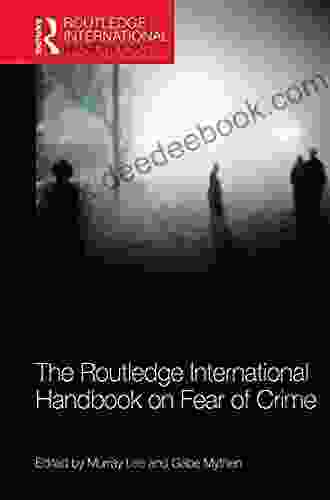
 E.E. Cummings
E.E. CummingsThe Routledge International Handbook on Fear of Crime
Fear of crime is a serious problem that can...
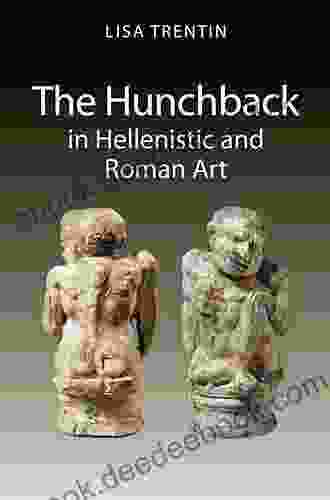
 Fletcher Mitchell
Fletcher MitchellThe Hunchback in Hellenistic and Roman Art: A...
The hunchback, or kyphosis, is a physical...

 Victor Turner
Victor TurnerA Comprehensive Guide to Needle Felting for Moms:...
Needle felting, a captivating craft...
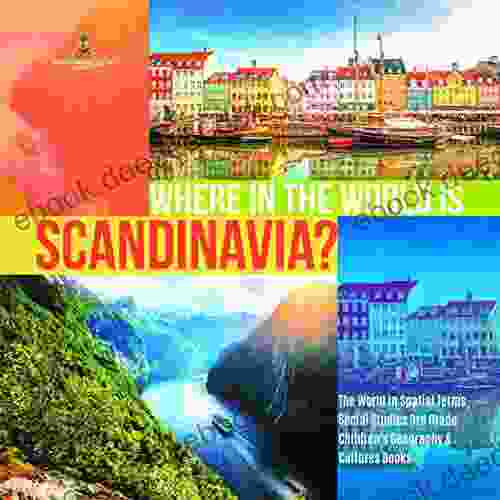
 Joseph Foster
Joseph FosterWhere is Scandinavia?
Scandinavia is a region in...
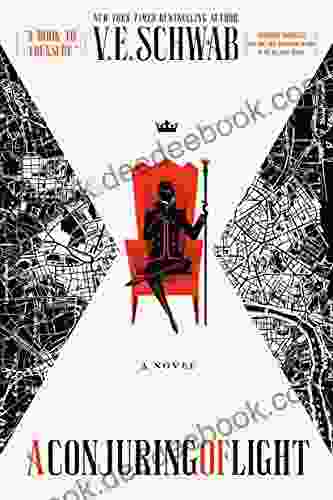
 Leon Foster
Leon FosterNovel Shades of Magic: A Masterpiece of Magical...
An Enthralling...
5 out of 5
| Language | : | English |
| File size | : | 4785 KB |
| Text-to-Speech | : | Enabled |
| Screen Reader | : | Supported |
| Enhanced typesetting | : | Enabled |
| Word Wise | : | Enabled |
| Print length | : | 288 pages |
| Lending | : | Enabled |


